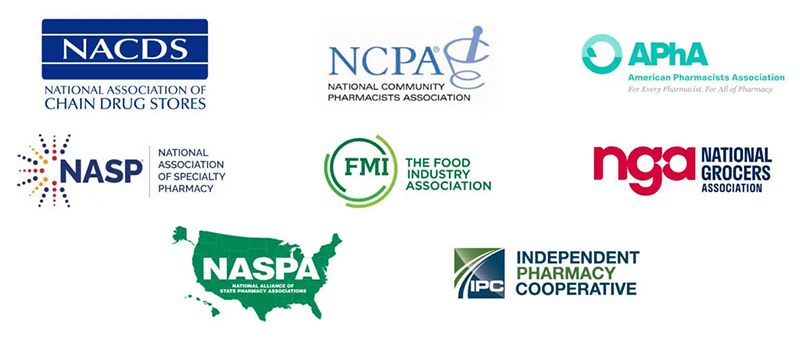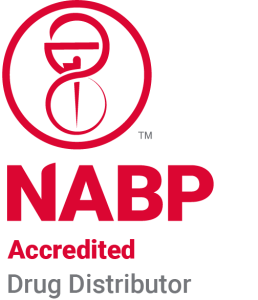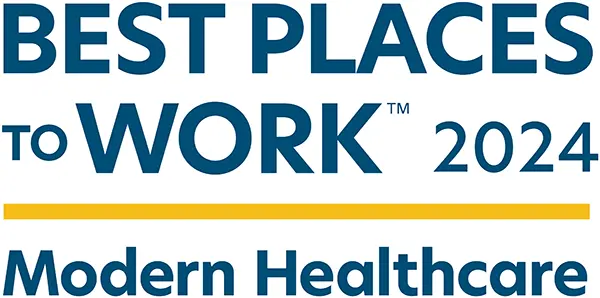We write – firmly united – as pharmacies and pharmacists across all practice settings.
We extend our deepest gratitude and strongest encouragement for your continued bipartisan scrutiny of the practices of some market-dominant pharmacy benefit manager (PBM) middlemen that inflate Americans’ prescription drug costs, force pharmacy closures, and block access to Americans’ pharmacies of choice.
Speaking with one voice, we also urge the U.S. Congress to send to President Biden’s desk this year the must-pass PBM reforms in Medicare, Medicaid, and the commercial markets that at long last would confront these harmful practices, and that have advanced on a bipartisan basis in the U.S. House of Representatives and the U.S. Senate.
Throughout the Committee on Oversight and Accountability’s investigation, our organizations and individual members have provided examples and insights about concerning PBM practices and their harms. Pharmacies and pharmacists have experienced and warned about these tactics for upwards of 15 years. Unabated and unchecked by federal action, these tactics and their devastating effects have escalated consistently and severely – and they have reached even new extremes in 2024.
As is now widely known, every day that passes without reform means more dollars flowing to PBMs instead of reducing Americans’ prescription drug costs and safeguarding access to trusted and convenient pharmacies.
Thankfully, recognition of some dominant PBMs’ devastating practices today is prevalent among Republicans and Democrats, conservatives and progressives, federal and state governments, employers, unions, patient groups, providers, rural and urban health advocates, and diverse media outlets.
It is past time for action.
Throughout the 118th Congress, we have articulated clearly pharmacies’ legislative priorities that are necessary to confront the harms that are ravaging Americans and their pharmacies. The following aspects of reform are absolutely necessary to ensure that a reform package is effective and that it can be supported by pharmacies:
Medicaid managed care pharmacy payment reform and a ban on spread pricing by requiring 100% pass-through to the pharmacy of the ingredient cost and of the professional dispensing fee, which could allow the federal government and states to save billions of dollars.
Ensuring fair and adequate Medicaid managed care pharmacy reimbursement from PBMs to cover the cost to acquire and dispense prescription drugs.
Requiring National Average Drug Acquisition Cost (NADAC) survey participation to help establish benchmarks for Medicaid reimbursement to retail pharmacies which can be used to ensure fair reimbursement to pharmacies in Medicaid managed care and in the commercial markets.
Requiring the Centers for Medicare and Medicaid Services (CMS) to define and enforce “reasonable and relevant” Medicare Part D contract terms, including information about reimbursement and dispensing fees, and establishing in Medicare Part D an approach by which “any willing pharmacy” can truly participate and serve patients.
Establishing relevant, standardized, and transparent pharmacy quality measurements in Medicare Part D.
These, along with additional policies have been the subject of bipartisan and bicameral work across key committees of jurisdiction, creating a robust package of Medicare, Medicaid, and commercial market reforms that also include:
Promoting transparency of insurer claims and reimbursement information to the pharmacy, including independent audits and enforcement measures in Medicare Part D.
Prohibiting PBM compensation in Medicare Part D from being tied to the manufacturer’s list price of a drug.
Prohibiting spread pricing in the commercial market by requiring 100% rebate pass- through of rebates and payments from drug manufacturers to commercial health plans to lower beneficiary cost and ensure adequate reimbursement for pharmacy acquisition and dispensing costs.
Again, we thank the Committee for its diligent investigation, and we urge the Congress’ enactment this year of what should be considered must-pass legislation: PBM reforms which the Congress has developed and which Americans and their pharmacies desperately await.







